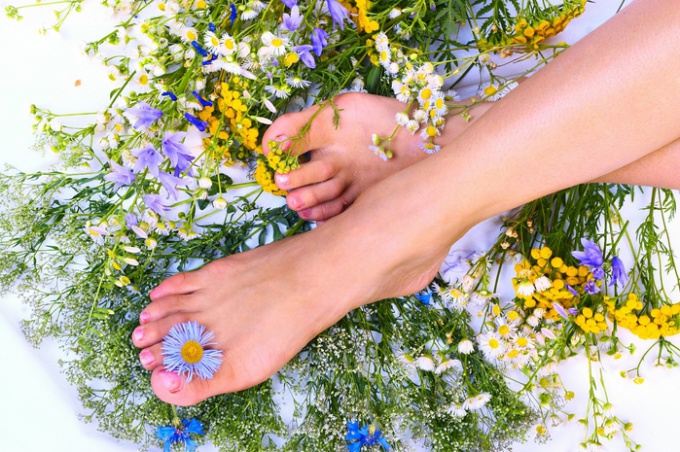By itself, sweat has no smell. But increased moisture in combination with lack of access to oxygen creates a breeding ground for bacteria, hence the appearance of bromhidrosis (smelly sweat).
Many say that foot sweat, but stay cool. This sign tells about the circulatory disturbance of the feet. But hyperhidrosis is the suspect when the quantity of allocated sweat exceeds 100 mg/sq cm, wearable in constant motion do not have time to absorb moisture.
Unlike hyperhidrosis of the palms caused by psychological factors (stress, phobias, etc), plantar hyperhidrosis appears when a malfunction of the sweat glands. Allow the sweating to normal and to eliminate odors is possible by following simple rules:
1. Wearing clothing made from breathable materials, disinfection of the shoes after each wear. For disinfection you can use the special sprays sold in Shoe stores. A great option for the winter: infrared dryer for shoes. For two hours the dryer eliminates moisture and microbes. Socks it is recommended to boil or rinse in a little salted water.
2. Baths and compresses for the feet of decoctions of medicinal herbs. Suitable oak bark, a grass of Burnet, Clary sage and rose hips. When excessive diaper rash with inflammatory processes apply compresses of tincture of marshmallow root or birch leaves.
Baths should be done at night for 30-40 minutes. After each bath foot should be wiped dry with a cotton cloth and sprinkle baby powder (talcum powder).
3. To improve the blood circulation of feet is recommended to buy a massage Mat and walk on it barefoot in the morning for 10-15 minutes.
4. Eliminate hyperhidrosis by medical. In medicine against excessive sweating iontophoresis is actively used (something similar to electrophoresis), when applied to the skin is impregnated with medicine gauze bandage and connected with a galvanic current.
In advanced cases require surgery: lumbar sympathectomy, when through small incisions in the region of convergence of the oblique and straight muscles of the abdomen at the umbilicus to interrupt the sympathetic chain of nerves.
Successful operation in 99% of cases leads to a reduction in sweating of the feet, at first a patient may feel heat and dryness of the soles, but this is a normal reaction. However, there may arise complications: bleeding, appearance of subcutaneous scarring on the abdomen, irregular perspiration of the body, etc. In order to avoid risks, you should weigh all the "pros" and "cons", as well as undergo a thorough medical examination.
